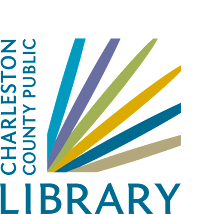
Tuesday, May 20, 2008
June Not Fiction Book Discussion

For our June Not Fiction Book Discussion, we will be reading Field Notes from a Catastrophe: Man, Nature, and Climate Change by Elizabeth Kolbert. The book began as a three-part series for The New Yorker, for which she won a National Magazine Award in 2006. Kolbert's title suggests her approach to the overwhelming topic of global warming--she provides a concise written record of her observations, interactions, and conversations from her travels around the world investigating her topic. We hope you will join our conversation, either on Tuesday, June 3, 2008, at 7:00 p.m. at the Main Library on Calhoun Street in Meeting Room A or here on the blog, about this brief but powerful book that many reviewers have called the Silent Spring (by Rachel Carson) for our time.
Monday, May 19, 2008
Notes from May's Not Fiction Book Discussion
We began our discussion of Michael Pollan's The Omnivore's Dilemma: A Natural History of Four Meals by comparing our own shopping and eating habits to Pollan's four meals and how the book had impacted these habits. Many of us said we were more conscious of the health, economic, environmental, and cultural implications of our shopping and eating choices. Some of us have already made small changes in our shopping and eating habits, such as visiting our local farmers' market more often and reading labels to look for hidden corn ingredients and other signs of highly processed food. However, all of us were left perplexed by how best to incorporate the information in Pollan's book into our lives. We thought we were doing ourselves and the environment a favor by buying organic products at our local alternative commercial markets; we thought we were upholding our intention to support businesses that treat animals humanely by buying dairy and meat products sold in these stores. We now realize that industrial organic has complicated our choices. Rather than answering questions for us, The Omnivore's Dilemma left us with more. Thus Pollan has accomplished for us as readers what he intended, for the theme of his book is the importance of knowing how our eating links us to the world around us. He asks us, "But imagine for a moment if we once again knew, strictly as a matter of course, these few unremarkable things: What it is we're eating. Where it came from. How it found it's way to our table. And what, in a true accounting, it really cost. . . . For we would no longer need any reminding that however we choose to feed ourselves, we eat by the grace of nature, not industry, and what we're eating is never anything more or less than the body of the world."
To read an exchange between Michael Pollan and John Mackey, co-founder and CEO of Whole Foods Market, regarding that company's efforts to offer consumers products that are ethically and environmentally sound, visit The CEO's Blog at http://www.wholefoods.com/. To read more articles by Michael Pollan about food, visit his website at http://www.michaelpollan.com/ and look under Writing.
We will continue our conversation about our relationship with our environment in the next two Not Fiction Book Discussions. For June we will read Field Notes from a Catastrophe: Man, Nature, and Climate Change by Elizabeth Kolbert, and for July we will read The Worst Hard Time: The Untold Story of Those Who Survived the Great American Dust Bowl by Timothy Egan. We hope you will join us, either at Main Library or here on the blog.
To read an exchange between Michael Pollan and John Mackey, co-founder and CEO of Whole Foods Market, regarding that company's efforts to offer consumers products that are ethically and environmentally sound, visit The CEO's Blog at http://www.wholefoods.com/. To read more articles by Michael Pollan about food, visit his website at http://www.michaelpollan.com/ and look under Writing.
We will continue our conversation about our relationship with our environment in the next two Not Fiction Book Discussions. For June we will read Field Notes from a Catastrophe: Man, Nature, and Climate Change by Elizabeth Kolbert, and for July we will read The Worst Hard Time: The Untold Story of Those Who Survived the Great American Dust Bowl by Timothy Egan. We hope you will join us, either at Main Library or here on the blog.
Subscribe to:
Posts (Atom)
